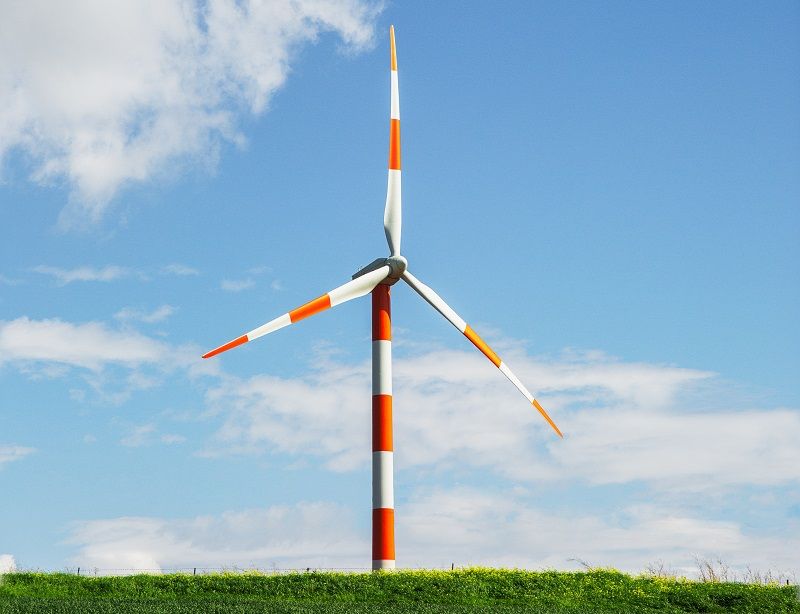
For decades, the talk of climate change and global warming has steadily transpired in and out of the news with issues on sustainability and the environment finally reaching its peak in 2018. John Beddington, the former Chief Scientific Advisor to the UK government, famously named 2030 crunch time for a "perfect storm" of resource and climate crises. And while there are those who are still questioning the effects of climate change, some innovative countries have taken the initiative to start paving the way to reverse the impacts and build a greener future, one city at a time.
These eco-friendly cities are analysed based on the United Nation's 'Sustainable Development Goals' and on how their development meets the urgent need for a more sustainable environment for the future workforce. These ambitious cities are playing their part to remain pollution-free while demonstrating the viability of creating a functioning eco urban area of economic fit for a greener future.
1. Copenhagen, Denmark
Due to continued investment into greener alternatives, Copenhagen emerged as Europe's most sustainable city and reached number one on the list of most eco-friendly cities in the entire world. And according to the Guardian, this Danish metropolis has achieved a milestone in its journey to becoming a cycling haven.
Today, Copenhagen's total number of bikes far outnumbers the total number of cars – rising by 68% in the last 20 years thanks to investments in new and better cycling infrastructures. Morten Kabell, the current mayor of technical and environmental affairs, aims to help increase the rate of commuting via bikes to 50% to help the city reach their ambitious goal of being carbon neutral by 2025.
And architecture-wise, this forward-thinking metropolis has already started to integrate green roofs on buildings as part of their urban planning and design. Their green ambition and goals have even reportedly inspired more innovation, job creation and investment between the government, businesses and education sectors. What's more, all buses (public transportation) in Copenhagen will make the shift to electric engines by the end of 2019! The country's state-of-the-art wind energy technologies are also leading the green energy charge, generating 41% of Europe's 14% in electricity demand and cementing its place as the world leader in renewable energy.
Take part in reducing global carbon emissions and find a role in the renewable energy sector.
2. Amsterdam, Netherlands
As the current Cycling Capital of the world, Amsterdam has long been at the forefront of transformation and innovative sustainability. In the capital's Sustainability Agenda, it aims to generate 20% more renewable energy and use 20% less energy per resident; improve air quality; establish a true circular economy with new forms of production, distribution and consumption; climate proof by 2020 and increase solar power capacity from 9MW to 160MW.
Their sustainable efforts have resulted in them being a trailblazer when it comes to electric transportation and eco-alternatives, providing over 300 electric charging stations across the city to offer a cleaner and smarter form of mobility for locals and tourists. Meanwhile, more and more buildings in Amsterdam now feature solar panels and personal farms while businesses commit to making better and more eco-conscious decisions that do not pollute or contaminate the environment.
3. Lahti, Finland
Finnish city Lahti is this year's European Green Capital winner for 2021 and a pioneer in air quality since 1997. And unbeknown to many, this Finnish metropolis has been drastically reducing their emissions since. As the home to 120,000 residents, Lahti has even stopped using coal as a form of fuel from the beginning of April this year, spending €180 million on a bioenergy plant as a renewable source of energy. Did you know: Lahti’s production of energy from all types of wastes is one of the best examples that’s eco-friendly and efficient.
And in addition to its clean air and excellent energy model, Lahti's sustainable urban environment practices mean that 99% of all its residents live within 300 meters of green urban areas. Their world-famous freshwater restoration project in Lake Vesijärvi has inspired numerous eco-friendly projects among its people and continues to serve as a distinction of urban hydrology expertise.
The best environmentally-friendly and sustainable project, however, has got to be their circular economy model that sees it reusing 96% of all household waste with recycling starting from residents' kitchens and homes – launching an excitingly innovative era of recycling and material processing innovations that’s truly zero waste.
4. Stockholm, Sweden
Sweden's capital has been working on climate change mitigation, adaptation and control since the 1990s when major environmental organisations began campaigning for change. In more ways than one, Stockholm is a true pioneer for green policies and was the first to receive the European Green Capital Award by the EU Commission back in 2010 – rightfully earning the title as the World's Most Sustainable City every year.
Did you know: this Swedish capital utilises wastes as biofuels to power vehicles, reuses wasted heat from places like its 30,000-seat stadium as a form of heat to warm homes and sends only 5% of its total waste to landfills with over 83% of all the hotels in Stockholm achieving eco-certifications. Stockholm's holistic vision and approach is a stellar example that cities can be green, efficient and economically stable all at the same time.
5. Berlin, Germany
Berlin's history has meant that sustainability is and always will be part of their core identity. And since the 1990s, this German capital has cut its carbon emissions by one-third and led the world in embracing alternative forms of transportation and mobility. As one of the greenest cities in Europe, Berlin has more than 400 electric charging points and four hydrogen refuelling stations across the city for its residents – a great indicator that their energy use is slowly moving away from fossil fuels to better and more sustainable alternatives.
Their steadfast growth and planning also sees the building of over 2500 green spaces, hundreds of bike lanes, better distribution and reuse of heat, and a recycling incentive that offers €0.25 for every plastic bottle recycled. Berlin's progressive recycling scheme means that 35% of all waste is recycled – well above the global average of 18% for cities of similar size and population.
Want to live in these eco-friendly cities? Speak to one of our recruiters today to explore opportunities for your next career success and you may just be on your way to living in an eco-friendly, eco-conscious metropolis powered by renewable energy and power.
Find a role in the energy and engineering industry.





